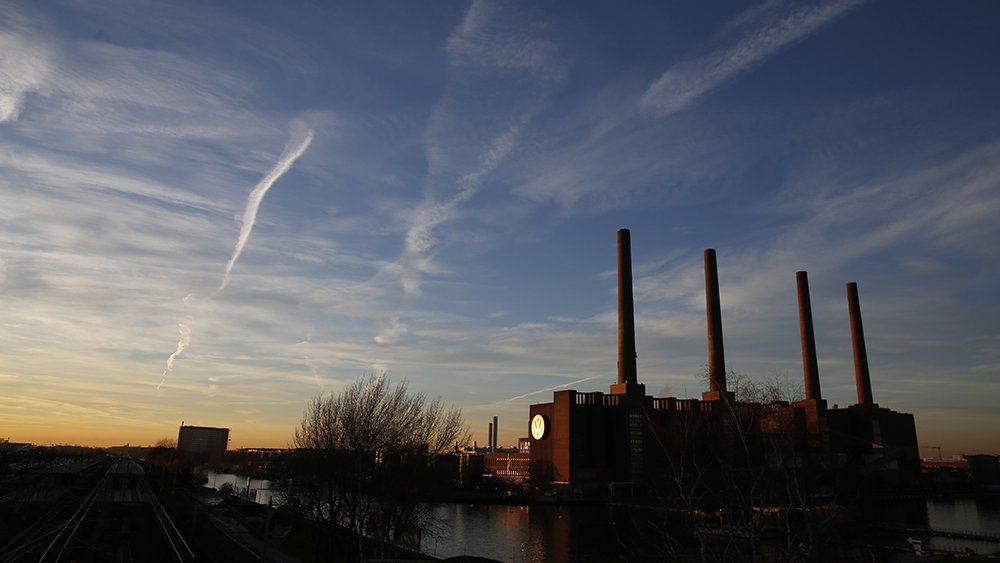Whether or not it was illegal, revelations about German automakers cheating the system are denting “brand Deutschland.” Do Germans play by a different set of rules?
The allegations that have surfaced this month against German automakers seem to confirm the worst suspicions that many in Europe hold about the EU’s largest country: while they insist on rigid enforcement of rules for everyone else, Germans seem to think the rules don’t apply to them.
A report by Der Spiegel magazine last week alleged that Germany’s five biggest automakers – Volkswagen, BMW, Daimler, Porsche, and Audi – have been colluding for two decades on pricing, suppliers, and diesel technical standards in order to give them leverage over foreign competitors. This week the European Union said it is investigating the issue and has appointed a vice president to oversee the investigation.
The allegations follow the sprawling “dieselgate” scandal, in which US authorities caught Volkswagen cheating on its emissions tests so as to make their diesel cars seem cleaner than they are. While the US has punished the company and demanded that it pay American consumers for the deception, Germany has not levied a fine on VW and European consumers are getting nothing.
All of this is reminding people of the well-known closeness between the German government and its auto industry. For years, journalists in Brussels have observed Berlin issue policy positions on EU legislation that seemed to have been written in the boardrooms of VW and Daimler. One notorious example came in 2013, when Chancellor Angela Merkel took the highly unusual step of killing an already-agreed deal on lowering car CO2 emissions, after the German auto industry objected to it.
It is small wonder that Berlin follows the auto industry’s line so closely, given that government posts are often a revolving door between the chancellery and auto industry board rooms. Research this week by Politico reveals the dizzying back-and-forth.
Double Standards
Coziness between government and industry is certainly not unique to Germany. But what is rankling people in Brussels and beyond is that when it comes to these issues of corruption, Germany seems to play by different rules than the ones it is rigidly enforcing on others. It emerged this week that the German government may have known about this collusion for a year, but did not reveal the investigation to the public.
Questions have also been raised about why the European Commission did not disclose their investigation earlier. The Commission has long been accused of treating Germany with kid gloves while it clobbers less powerful states who violate the rules. These accusations have only grown louder since Martin Selmayr, a German lawyer with close connections to German media and industry, organized the election of Jean-Claude Juncker as EU Commission President and became his chief of staff.
Commission sources have said that the EU executive has been frustrated at its inability – for both political and legal reasons – to hit back at Germany for the VW emissions cheating scandal. Some within the Commission may be eyeing the cartel investigation as a way to reign in the German automakers’ excesses. The question is whether those commissioners and civil servants will be blocked by Juncker’s powerful chief of staff.
Even if they are not stopped for political reasons, they may be stymied by the legal realities. Auto industry sources say it will be difficult, but not impossible, for the Commission to prove collusion here. Volkswagen’s board has insisted that “discussing the feasibility as well as the standardization of technical solutions and safety standards with respect to new technologies where regulatory approaches are still pending is in many instances necessary and valid.”
But no matter the legality, the impression these scandals leave with the public across Europe is that the so-called “European taskmaster” believes the rules apply only to others.
These scandals have not been limited to the auto industry. Deutsche Bank has also been running into trouble, having to pay a $7.2 billion settlement last year with the US government for mis-selling mortgage-backed securities from 2005 to 2007. Now, the bank is at the center of a possible corruption investigation into the business activities of US President Donald Trump.
German engineering giant Siemens has also been at the center of rule-bending allegations recently, accused of violating EU sanctions against Russia by supplying equipment for two new power stations in occupied Crimea. This as Berlin has brow-beaten other European countries to honor the sanctions regime.
Perhaps the mounting scandals will force Berlin to be humbler in its dealings with other EU countries that find themselves afoul of the rules. But surely, the better remedy would be for German companies, and government officials, to start practicing what they preach.







